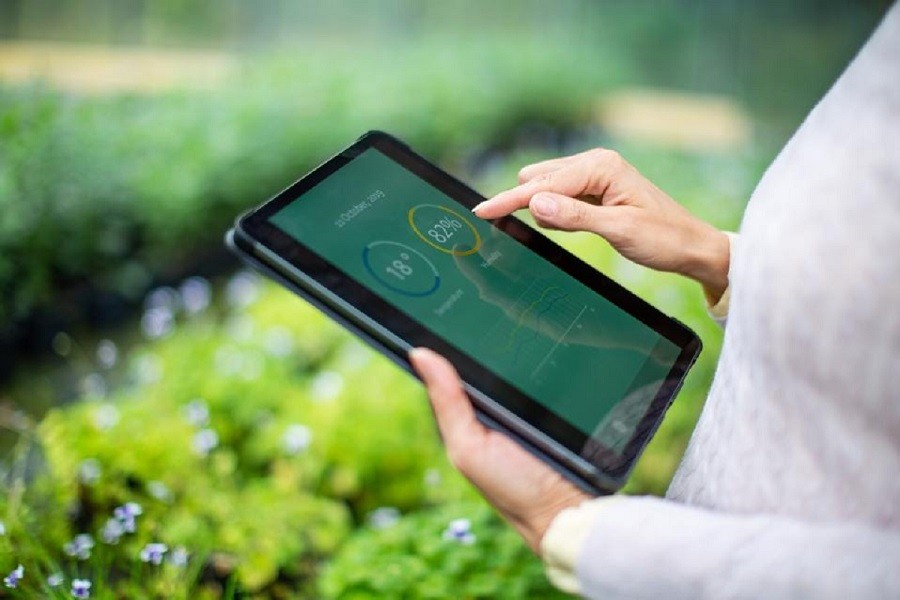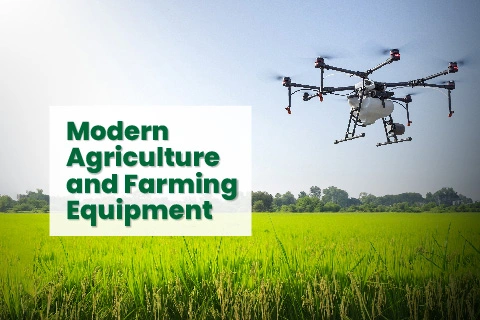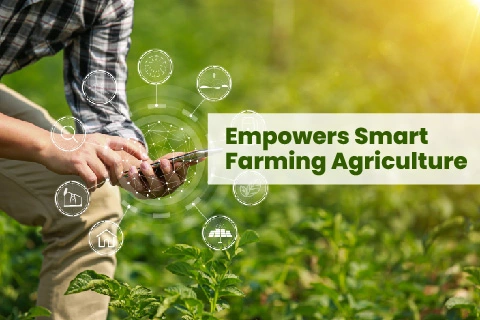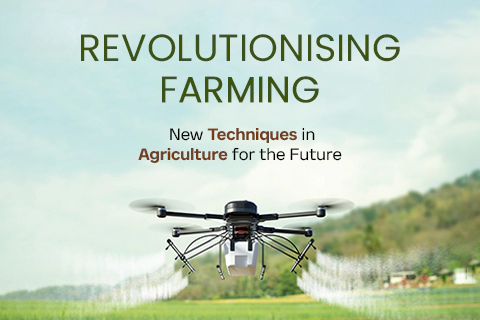The technological revolution in agriculture is making the future of agri-tech more promising than ever. The advancements in agriculture technologies, including automation and data-driven decision-making, are expected to transform farming in the years to come. The biggest technology trends that will impact agriculture in 2023 are examined in this article.
Precision Agriculture
Precision agriculture is a kind of farming that uses technology to boost productivity and efficiency. Farmers may gather information on crop health, soil moisture, and weather patterns with the help of drones, sensors, and other smart devices. With this information, decisions on crop management, irrigation, and fertilisation can be made more intelligently. Farmers may improve sustainability, increase productivity, and lower expenses by implementing precision agriculture.
Autonomous Farming Equipment
Agriculture is seeing a rise in the use of autonomous farming equipment. Robotics and artificial intelligence have made it possible for farmers to automate a variety of jobs with the help of tractors and drones. Farmers can save time, cut labour expenses, and increase accuracy by using autonomous agricultural equipment. By working nonstop and obviating the need for breaks, it can also help in boosting productivity.
Vertical Farming
Vertical farming is a method that involves employing artificial lighting and controlled settings to grow crops in stacked layers. This technique lowers transportation costs and carbon emissions because it enables year-round food production and may be carried out in metropolitan locations. In addition to using less water than conventional farming techniques, vertical farming is a sustainable option.
Blockchain Technology
In agriculture, blockchain technology is becoming more popular, especially in the fields of supply chain management and food safety. Farmers can trace their products using blockchain technology from seed to sale, giving consumers additional certainty of quality and transparency. By enabling accountability and traceability, this technology can also decrease food fraud and improve food safety.
Artificial Intelligence and Machine Learning
To make data-driven decisions, artificial intelligence and machine learning are being employed in agriculture. Farmers can optimize their farming techniques by using AI to analyze data on weather patterns, crop health, and soil moisture. AI can improve sustainability by using less water and fertilizer, as well as reduce waste by forecasting agricultural yield and demand.
Digital Twins in Agriculture
Digital twins are virtual representations of processes, objects, and systems that exist in reality. As a new technology trend, the usage of digital twins in agriculture has the potential to completely alter how farms run. Farmers can test and analyze many scenarios by creating a digital twin of their farm to determine the best course of action. The use of this technology can improve crop yields, decrease waste, and boost profitability for farmers. The usage of digital twins in agriculture is anticipated to increase in 2023.
Robotics and Automation
Agriculture already uses robotics and automation technologies to boost productivity and cut labour expenses. We may anticipate more advanced robots and automation technologies in 2023 that are created especially for the special requirements of agriculture. For instance, we might witness the creation of robots that can more effectively and precisely harvest crops, plant seeds, and apply pesticides and fertilizers.
Biotechnology
With the ability to increase yields, improve nutritional value, and make crops more resistant to pests and diseases, biotechnology has the potential to transform agriculture. More biotech products should be available on the market in 2023, according to predictions. For instance, crops with higher nutritional value or crops resistant to particular pests or illnesses may be created by genetic modification.
Overall, the future of agriculture is promising as more and more cutting-edge technologies are created and implemented in the sector. Making ensuring these technologies are applied in a way that benefits both farmers and consumers will be crucial. We can build a more long-lasting, effective, and prosperous agriculture industry by embracing these technological advances.
Conclusion
The future of agritech looks bright, with a range of technologies that will transform agriculture. From precision agriculture to blockchain technology, the advancements in agriculture technologies will provide farmers with greater efficiency, productivity, and sustainability. These technologies will also help reduce risks and increase profitability for farmers. In the coming years, we can expect to see even more innovations in the agriculture industry, making it an exciting time for agritech in India and around the world.




